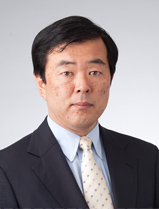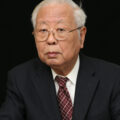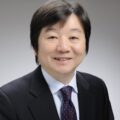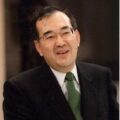“Security” or “Constitution” – Don’t Fall Between Two Stools

YOSHIZAKI Tatsuhiko, Economist
The former ambassador for Thailand, Okazaki Hisahiko[1], who passed away last fall, always used to give his “Assessment of the Current International Affairs” at a forum held by the Okazaki Institute every spring. In spring 2013, after the start of the second Abe administration, he said something like this.
“Conservatives in Japan have two causes. One is to amend the historical perception of the Japanese. The other is to establish a better security policy. They cannot do both at the same time. If we had to choose between them, security policy must surely be given greater priority at the moment.”
In other words, if we focus on the problem of historical perceptions, such as the issue of Prime Minister’s official visits to Yasukuni Shrine, we will alienate public opinion in the United States. And if that happens, we will no longer be able to address the latter problem, i.e. strengthening the Japan-U.S. security framework. So it follows that we should cast the former problem from our minds.
One can easily imagine the criticism this idea would attract – for example, that it “makes light of conservatism” or is “too subservient to the United States.” Nevertheless, such a simple and frank talk was the “Okazaki style.” That is, we should avoid the avarice of wanting “both A and B” and express a clear insistence on “A not B.” Somehow, he seemed to enjoy seeing people getting angry about this. I always admired this “Okazaki style” and found it attractive.
I think the above statement by Amb. Okazaki was both a rallying call to the conservative camp and advice to the second Abe Cabinet. In his first term, Prime Minister Abe failed because he overextended himself into too many agendas. He got involved in a draft National Referendum Act, a revision of the Basic Act on Education, and finally a reform of the national civil service system. Yet his major goal of “breaking clear of the postwar regime” remained untouched.
As I recall now, Amb. Okazaki let slip a degree of dissatisfaction back then in 2007.
“I hope Mr. Abe will establish the right to collective self-defense as soon as possible,” he said, “but when I mention it, my colleagues tell me to keep quiet because it will obstruct constitutional amendment.”
At the time, the Abe Cabinet had finished its draft bill on the National Referendum Act and had thus cleared an important step toward constitutional amendment. It then set up the “Advisory Panel on Reconstruction of the Legal Basis for Security” to broach the problem of the right of collective self-defense. Of course, Amb. Okazaki was a member of this Panel. In the final event, time ran out. And for that alone, if nothing else, Okazaki was overjoyed when the second Abe Cabinet took office.
Having been an “unofficial observer” at the Okazaki Institute ever since around 1995, I heard all sorts of opinions from Amb. Okazaki over the years. And I think Abe must also have heard the same opinions during that time, in a different form. The difference was that, for him, it was leadership advice, whereas for me it was just idle chatting over drinks. Nevertheless, the content must surely have been the same. That’s why I personally see Abe as “a Prime Minister who graduated from the Okazaki School.”
The second Abe Cabinet has probably been shaped by reflection over the first. That’s why Prime Minister Abe, a warm-hearted person who normally dislikes clear divisions between “A or B,” has chosen his own mission with Okazaki-style dryness — “not historical perception but the security problem,” and “not constitutional amendment but the right to collective self-defense.” The result of this is the new security legislation being debated in the current Diet session (189th session: 26 January to 27 September 2015).
To be honest, public opinion on the new security legislation is extremely negative. This, in turn, is serving to reduce support for the Cabinet; in most surveys since July, support has swapped places with the opposition. So does Abe regret making this move? Probably not. I imagine he thinks that now is the time to cash in on all the political capital amassed in two and a half years since he returned to power.
Until now, security debate in the Diet has been a repeated cycle of hurriedly passing bills as a knee-jerk reaction to, say, the start of the Iraq war or the launch of a Taepodong missile. As a result, the debate has never gone into any depth, and there has been no improvement in public understanding either. But now, unusually, the security debate is being held in a time of relative peace. In any other scenario, this should be the perfect opportunity to settle down and have a proper in-depth debate.
Yet if we look closely, we see that not only is there no sense of urgency in society as a whole, but there are also too many bills, and thanks moreover to the boneheads in the ruling parties, deliberation in the Diet is a repeated cycle of shallow debates. The government and ruling parties are also shackled by having to talk of strengthening security without mentioning “the Chinese threat” if possible. This is based on a general improvement in Japan-China relations, and signs that we might just get through the “70th anniversary of the war’s end” without mishap.
Japan’s forum for political debate seems to have adopted the oddly simple structure of “hawks on the right versus doves on the left.” More specifically, there are “doves on the right” but no “hawks on the left.” There is no group like America’s “liberal hawks,” and as a result, the left has produced no polemicists who can conduct real debate on security.
Then if we consider well-informed experts who oppose the new security legislation, constitutional scholars often pop up, whereupon the issue turns into “security debate equals constitutional debate.” These scholars then say – quite conveniently for them – that “The new security legislation need not be discussed as it is unconstitutional.” This is just what the Democratic Party of Japan wants, as “the party would be split in two if it argued against the bill.”
But if this goes on, we will never manage to discuss changes in the security environment surrounding Japan. There are precious few points of intersection between the right, which wants to talk about “security,” and the left, which is only interested in “legislation.” I think this is what makes our “peacetime security debate” so sterile.
[1] Okazaki Hisahiko (1930–2014) was born in Dalian, China, in 1930. While a University of Tokyo student, he passed the diplomat examination. He withdrew from the university and entered the Ministry of Foreign Affairs of Japan in 1952. He received his B.A in 1954 and M.A in 1956 in Economics from the University of Cambridge. He served as Director General for Foreign Relations, Defense Agency (1978–1981), Minister, Embassy of Japan in the United States (1981–1984), Ambassador Extraordinary and Plenipotentiary to Saudi Arabia (1984–1988), Ambassador Extraordinary and Plenipotentiary to Thailand (1988–1992), Senior Advisor, Hakuhodo, Inc. (1992–1995) and established the Okazaki Institute in 1995. His publications include A Japanese View of Detente (1974), Grand Strategy for Japanese Defence (1986) and A Century of Japanese Diplomacy (1853–1952) (2007).
“Patriot” or “realist”?
So what’s to be done? For Prime Minister Abe, “changing the interpretation of the Constitution on the right to collective self-defense” is the biggest policy challenge. Why is this necessary? Most likely, to “construct a bilateral Japan-U.S. security system.”
We cannot “hitch a ride on America’s back” forever. After all, if an emergency situation were to arise in the East China Sea, Japan would not be caught up in America’s war; America would have to get involved in a conflict between Japan and China. For sure, the defense of the Senkaku Islands falls within the scope of the Japan-U.S. Security Treaty. Nevertheless, the judgment whether this warrants shedding the blood of “American boys” would be a separate problem for the U.S. federal government. And when push came to shove, would the Japanese side be able to say, “Please waive the right of collective self-defense”?
Prime Minister Abe has inherited the DNA of his grandfather, former Prime Minister Kishi Nobusuke, who advocated an equal relationship between Japan and the United States. My surmise is that he feels it his historic mission to bring the Japan-U.S. relationship to a more bilateral footing.
However, Kishi also had an earnest desire to amend the Constitution. Abe cannot completely discard this banner either. Even so, there is a very small chance of that being achieved, in all honesty. After seeing the local referendum on the Osaka Metropolis Plan on May 17th, in particular, the difficulty of holding a “national referendum” once again stands out in stark relief. The “silver democracy” that expands daily in this country is exceptionally averse to changing the status quo. Even a local referendum on the “Metropolis Plan,” where a comfortable “Yes” majority was predicted by opinion polls before the event, was rejected by a narrow margin. Even if an amendment of the Constitution were set in motion with two-thirds support of the Upper and Lower Houses, the ensuing national referendum would still have to be seen as a gamble.
Which means that it will be very hard to amend the Constitution. Even disregarding the other clauses, the amendment of Article 9, at least, must be seen as a significant hurdle.
In that case, Prime Minister Abe just needs to declare that “Article 9 of the Constitution will not change during my tenure.” The content of the new security legislation could just be squeezed into the framework of the existing Article 9. Moreover, even it were possible to amend Article 9, it would mean creating “new new security legislation” some years later. Given all the tribulations of the current Diet session, this would be a double investment of time and effort. Since “security legislation” is like a manual in the first place, it doesn’t need to be changed so often. Rather, our approach should be that, having reached this point this time, we should be all right as we are for another ten years or so.
As a conservative, however, Prime Minister Abe cannot drop the banner of “amending Article 9.” Because that would be a betrayal of core Abe fans. But people who oppose the “War Bill” are wondering whether “Abe is dangerous” and “Article 9 will be the next to go.” I think the situation could be vastly improved just by relaxing this ideological confrontation.
As a politician, Abe Shinzo has often been torn between two Ps. These are the P for “patriot” and the P for “pragmatist.” In the sense that he is well versed on the problem of historical perceptions and has devoted his full attention to the issue of abductions by North Korea, Abe is most definitely a patriot. This was partly his “selling point” as a congressman. But since taking office as Prime Minister, he has occasionally exhibited the quite contradictory aspect of a pragmatist. It goes without saying which Abe Shinzo is needed by the Japanese government. I would urge him not to fall between two stools.
Abe wrote a eulogy to Okazaki in what became the latter’s final memoir, A Half-Century: Assessment of the Current International Affairs (Ikuhosha). In it, Abe writes: “Looking back, former Ambassador Okazaki has served three generations of my family – my grandfather, my father Abe Shintaro (former Foreign Minister), and now myself.”
In that case, I certainly wish he would put the “Okazaki style” into practice. Not “both A and B” but “A not B.” What we need is the right of collective self-defense, not constitutional amendment.
If he were to separate the two like this, I think Prime Minister Abe might grow in stature as a leader.
Translated from “’Anpo’ to ‘Kenpo’ no Nito wo ounakare (“‘Security’ or ‘Constitution’ – Don’t Fall Between Two Stools”),” Shincho 45, September 2015, pp. 38–42. (Courtesy of Shinchosha Publishing) [September 2015]



